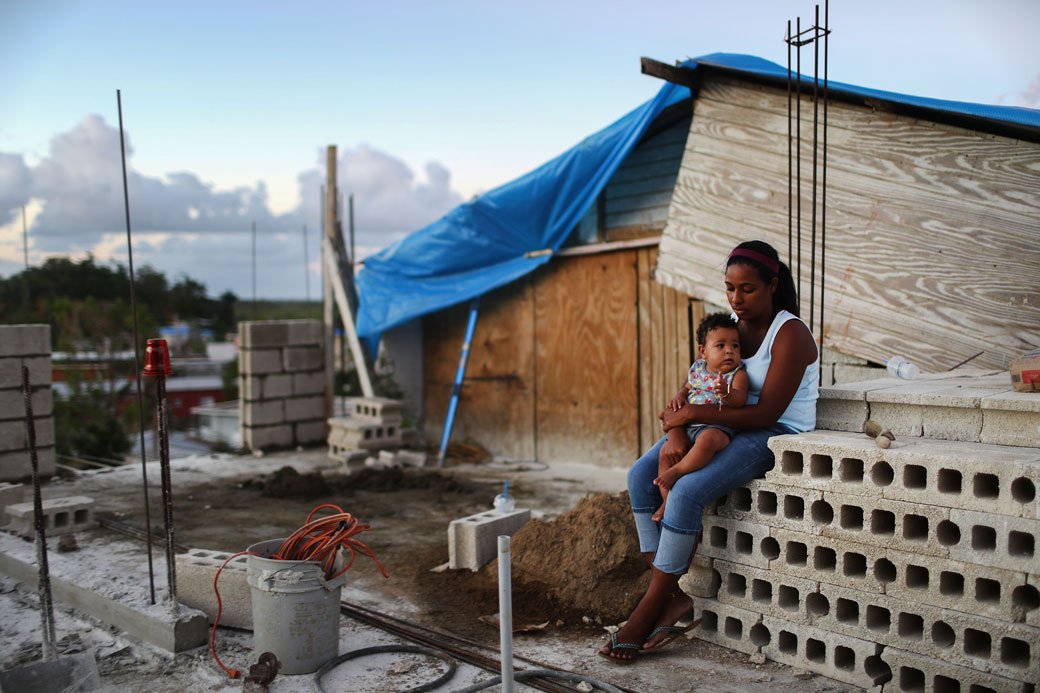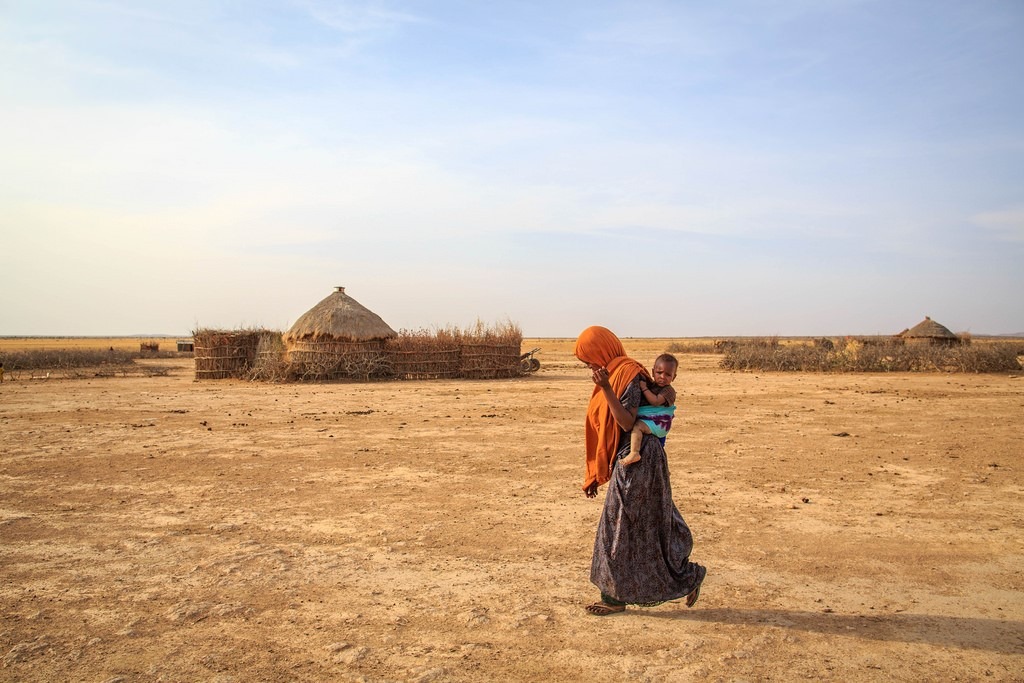Climate crisis undoubtedly affects every citizen of the world and it is the biggest threat that can lead to a global health crisis in our times. But the rapid rise in global warming and the irreversible changes in the climate are affecting women in more ways than imaginable. Climate change is linked to gender as it affects the sexual and reproductive health, and rights of many women.
The Lancet Commission states that over 200 million women want, but currently lack, access to modern contraceptives. As a result, 76 million unintended pregnancies occur every year. Contraception, reproductive health, and climate change are tied together due to many connecting factors, and it is important to employ the gender lens while addressing climate crisis to ensure comprehensive, effective coping strategies.
The relationship between women’s reproductive health and climate change
Climate change is highlights the problematic ways in which we interact with our environment. It also brings to light the inequalities that already exist in our largely male dominated, patriarchal society. As many women are denied access to contraception at a global scale, the number of unwanted pregnancies is also increasing every year. Since 2011, 11.5 million women have had their access to contraception disrupted and the global safe abortion and contraception metrics on this are only expected to rise over the next decade.
Strict abortion laws, as well as religious, patriarchal and moral sentiments around the concept of abortion in many countries has led to the stigmatisation of abortion even in the case of unwanted pregnancies. The increase in the rate of pregnancy leads to a rapid growth in population which contributes to the carbon footprint of an individual, thus adding to the climate crisis.
The lack of global political engagement in this matter has further aggravated the issue. The Lancet Commission report states, “A study of the first 40 National Adaptation Programmes of Action (NAPAs) submitted by least developed countries to the UN Framework Convention on Climate Change showed that 37 such countries made the link between population growth and climate change. But only six of them identified family planning as part of their adaptation strategy...”
Access to contraception and the autonomy in its use is governed my class, caste, social location and many other intersectional factors, apart from moral and cultural barriers. For women in the coastal regions of West Africa especially Senegal, the lack of access to contraception due to the climate crisis is a pressing matter. The drastic changes in the climate are affecting the livelihood of people who live off the mangroves in the coastal regions. The lack of access to contraception is leading to pregnancies which according to these women are not desirable during a crisis

Climate change and women’s bodily autonomy
Contraception is a much needed necessity for women and birth givers of all genders as it ensures protection against not just unwanted pregnancies but prevents pregnancy related health risks. Access to contraception is not just a medical need. The World Health Organization says, “Ensuring access for all people to their preferred contraceptive methods advances several human rights including the right to life and liberty, freedom of opinion and expression and the right to work and education, as well as bringing significant health and other benefits.” When women are denied access to proper contraception they lose governance of their own bodies. This bodily autonomy is every individual’s right. By denying this right to women, climate change is simultaneously becoming a gendered issue.
Access to contraception and the autonomy in its use is governed my class, caste, social location and many other intersectional factors, apart from moral and cultural barriers. For women in the coastal regions of West Africa especially Senegal, the lack of access to contraception due to the climate crisis is a pressing matter. The drastic changes in the climate are affecting the livelihood of people who live off the mangroves in the coastal regions. The lack of access to contraception is leading to pregnancies which according to these women are not desirable during a crisis.
The lack of access to contraceptives is not only affecting their health but also forcing them to alter their bodies unwillingly. So, the Senegalese women who are prevented from accessing desired contraceptives are at a risk of losing their bodily autonomy. These women are reluctant to get pregnant because it hinders their work. Their socio-economic status also makes it difficult to raise a child amidst dire circumstances.
While the super-powers of world politics give vague, temporary solutions for climate change, it is the women of developing or under-developed countries who bear the brunt. World leaders seldom pay heed to this pressing issue because it does not affect them. The alteration of female bodies due to unwanted pregnancies is not much of a serious concern for male policy-makers who occupy and dominate most decisive positions in governance and global politics. The lack of a substantial number of women in power is also a reason why conversations around this issue are not very common in discussions about the climate crisis. This points to the importance of employing a gender lens to tackling climate change
The strict abortion laws in the West African countries also necessitate the need of proper contraceptives. In a country like Senegal where abortion laws are restrictive and vague, women often undertake drastic measures for termination of pregnancies. The clandestine methods of abortion increase the risks of complications and can turn fatal. But the low-income women living in the coastal regions of the country are more likely to face severe complication related to abortion than women living in urban areas with better access to medical treatments.
Also read: Women Rising—Exploring Women’s Agency In Combating Climate Change
These women who in their own capacities are contributing in protecting the climate from further deterioration are denied very fundamental human rights. The efforts of the Senegalese women to save our planet is eradicated due to our failure to provide them with reproductive healthcare. Women, especially lower class working women living in the coastal, ecologically vulnerable regions throughout the world are either facing or will be facing similar problems very soon.
The need for a gender lens in addressing climate change
While the super-powers of world politics give vague, temporary solutions for climate change, it is the women of developing or under-developed countries who bear the brunt. World leaders seldom pay heed to this pressing issue because it does not affect them. The alteration of female bodies due to unwanted pregnancies is not much of a serious concern for male policy-makers who occupy and dominate most decisive positions in governance and global politics. The lack of a substantial number of women in power is also a reason why conversations around this issue are not very common in discussions about the climate crisis. This points to the importance of employing a gender lens to tackling climate change.
The lack of awareness around women’s reproductive health and the stigma around it prohibits a global conversation to be initiated on this. As societies keep on discriminating against women, the low-income working women living in ecologically fragile areas throughout the world become most vulnerable in the face of the climate crisis. Women are not only losing their bodily autonomy to this crisis but are often risking their lives and livelihood in the process.

Like the Senegalese women who maintain their local eco-systems, menstruating individuals throughout the world irrespective of their class, race, caste, gender identity or sexuality must have the autonomy to exercise the right to their own bodies. The conversation around it is left out of discussions on climate change because the crisis seems invisible to the privileged male decision makers. But for how long can it be avoided? When more and more women around the world are beginning to lose access to contraceptives, what can we do to improve the situation?
To control the climate crisis, astounding measures are being promised. But for the women facing the immediate harms of the crisis, smaller, more problem- specific measures are needed. As the skewed laws and policies regarding women’s health keep on benefiting the patriarchal society, women keep on suffering. Until and unless the policies regarding women’s reproductive health are not free from lop-sided, gendered politics, the climate crisis will keep on affecting women which will in turn affect the whole world.
Also read: How To Mitigate The Impact of Climate Change On Agriculture
Featured Image Source: Centre for American Progress
About the author(s)
Udhriti Sarkar is a post-graduate student at Calcutta University. When she is not obsessing over fictional characters, she observes people and writes about them





// Climate change is highlights //
// autonomy in its use is governed my class //
Images with their location captioned would be much more appealing imo.
A very crucial article that focuses on the pressing issue of reproductive health, population growth, and its impact on the environment.
Idiot men turn their wives into baby producing machines. Their should be a very strict two child policy in India.